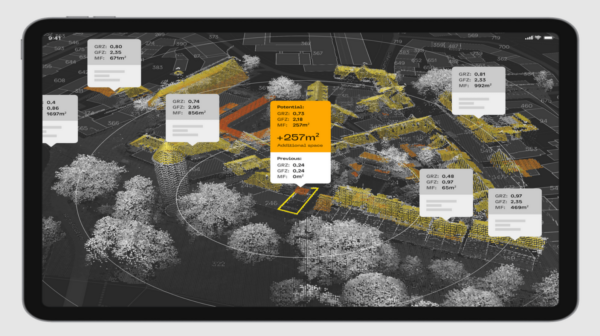This week, sustainable proptech VC investor A/O PropTech published a new report investigating the use of AI technology in the built environment.
The report is an in-depth examination of the “Built World” – human-made structures (such as buildings) that comprise our cities, villages, and communities.
It illustrates how AI-infused technology is supplying the foundation for the future of proptech.
Everything from construction automation to IoT, digital clones, computer vision, and generative AI contains AI. It produces intelligent structures and infrastructure and facilitates real estate investment.
Greater venture capital investment in Built World AI than in Fintech AI.
In the past five years, 25% of Built World venture transactions involved AI-based enterprises. During the same time period, only 15% of venture-backed FinTech firms utilized any form of artificial intelligence.
Early-Stage Venture Investing Is the Norm
The Built World has witnessed the incremental maturation of AI enterprises over the past five years. From roughly 20% of transaction flow to 50%, the proportion of Series A+ deals has grown.

Meanwhile, Seed-stage activity has remained relatively stable, indicating future expansion.
Investments in Built World AI are motivated by a concern for the environment.
In 2022, the majority of venture capital transactions involved real estate, smart building, and construction ventures.
In Germany, syte’s real estate search engine for brokers, urban planners, and project developers received initial funding.
Also funded was Predium, an AI-powered platform that provides data on buildings, consumption, CO2 emissions, tenants, and climate hazards to assist businesses with their ESG.
In 2023, the trend will continue
Oculai, which uses AI to gain greater insights into construction sites (crucial for reducing environmental inefficiencies), and Neverwaste (formerly Unwasted), which converts waste cardboard and packaging into panel boards for use in construction, furniture, kitchens, and flooring, have also received funding this year.
The beginning of generative AI’s influence
The report predicts that Generative AI will have a significant impact on the real estate industry, optimizing building design through architectural concept design model creation and visualization, and even producing a Building Information Model (BIM) from a basic descriptive text.
Planner 5D is already available for interior design. Blackshark.ai employs generative models to produce a digital duplicate of the planet. Satellite Vu intends to collect the data necessary to bridge the distance between high-resolution drone or street-level data and general large-scale satellite mapping data.
Gregory Dewerpe, founder and chief information officer of A/O PropTech, recommends a deliberate analysis that goes beyond the hoopla.
“it is important to look at innovation in a holistic manner, and while AI has massive potential, it will require the entire tech stack of the Built World to progress forward (data, transparency, automation) to yield game-changing impact.
That’s precisely why we are tackling this generational industry transition, the largest of our generation, through a whole array of technologies, which directly and indirectly contribute to a better Built World.
Broadening digitisation will enable innovators to leverage generative models and other AI technologies to unlock true automation in the Built World – which can be essential for decarbonising our buildings and cities.”

